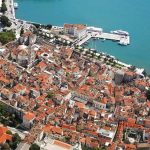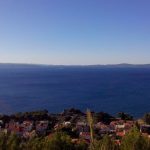For decades, the only activity associated with the neighbourhood called Poljud (pron. Pohlyood) in general Split mythology was football, or soccer, depending on which side of the Atlantic you’re coming from. Local team Hajduk (Hidook), 103 years old and bigger than life in Split, has its home there since 1979, in a beautiful shell-like stadium. Since last year, however, there is another internationally recognized element of Poljud, both ‘hood and stadium – Ultra Europe festival.
Poljud and nearby Spinut (Speanoot), settled on the northern side of Marjan hill, were only recently discovered as a possible place to stay while on vacation in Split, mostly because all attention was usually directed to the Old Town, and its neighbouring city parts. However, northern Split is very convenient for those not seeking a place to stay within the historical city core.
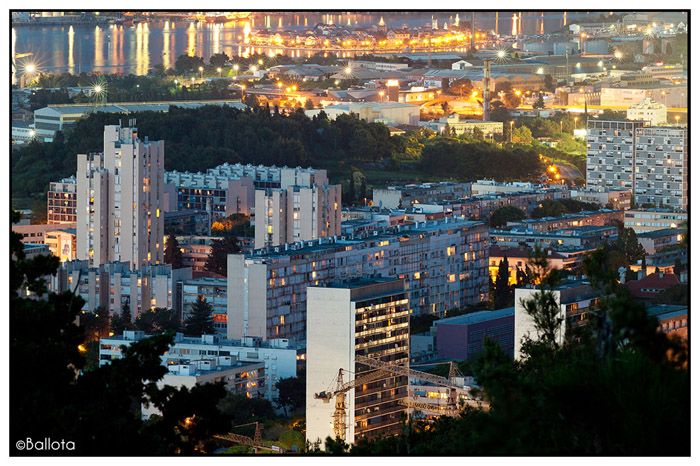
Most of the buildings – except in streets closer to Marjan – are rather new, built in the 1970s and 1980s, during Yugoslav times, meaning you will find typical socialism-era architecture, buildings raised for people working in local factories. It doesn’t have to be as bad as it sounds, at least most of them are solid, fully equipped structures. In the last few years, since Split became a big thing in tourism, a lot of apartments were re-arranged into very decent accommodation. Another random AirBnB search for mid-June gave us a good deal of results.
Staying in Spinut/Poljud, as well as in some other newer neighbourhoods, is very convenient for those who arrive by car. It’s much easier to find a parking space around buildings. Also, it’s easily accessible from any direction, and going to an Old town for sightseeing is really a nice down-the-hill easy and short walk.
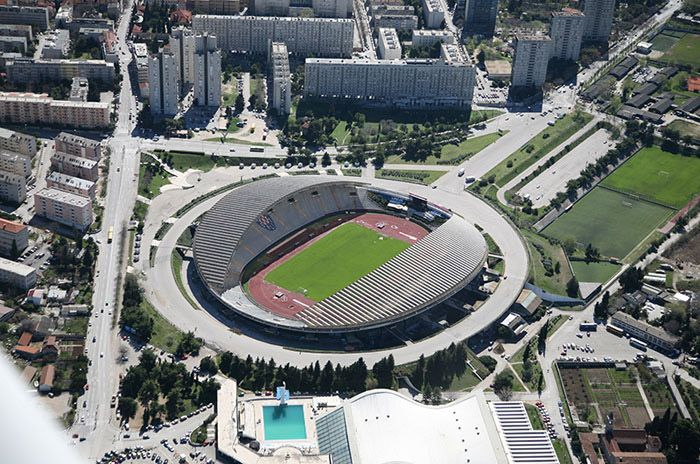
There are good sightseeing points in this neighbourhood too, some of them are among the major Split landmarks. We have already mentioned the stadium. Although it could be in better shape, the main attraction is the story of Hajduk, and any local will be more than happy to tell you about it.
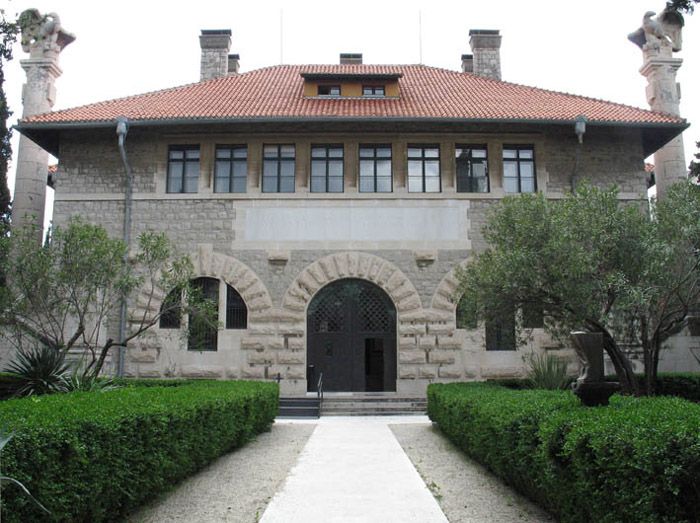
The biggest cultural and heritage spot is by far the Archeological Museum, with an incredible collection of Greek and Roman artefacts.
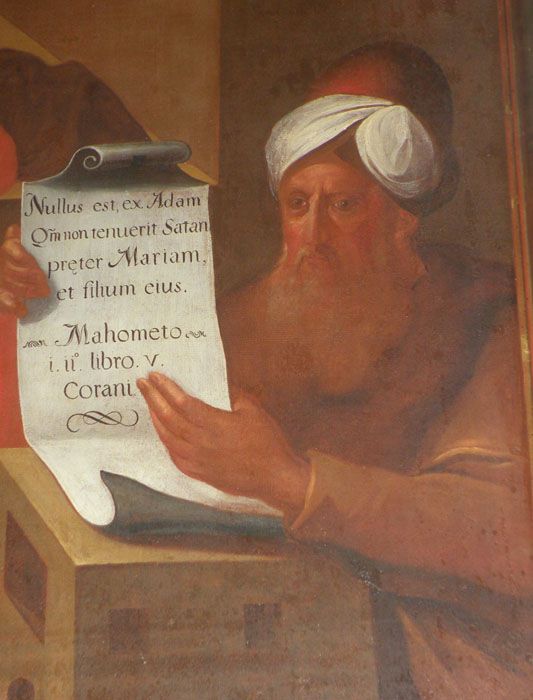
Another interesting spot for history-lovers might be the monastery of Saint Anthony, just by the stadium, with a true rarity – an 18th century painting depicting Muslim prophet Mohammad, one of very few in Europe.
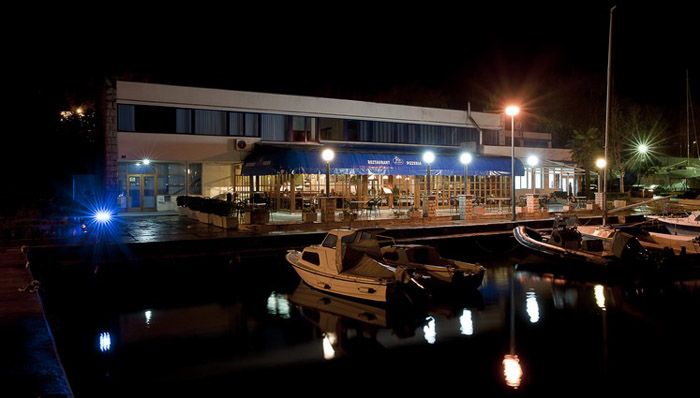
This neighbourhood is mostly residential, as we explained, and don’t expect to find a lot of restaurants around. Some exceptions are around the sporting marina, where some middle class, but very reliable and inexpensive places are based, like Re di Mare, Lučica, Gusar, etc, with some of the most beautiful terraces in Split.
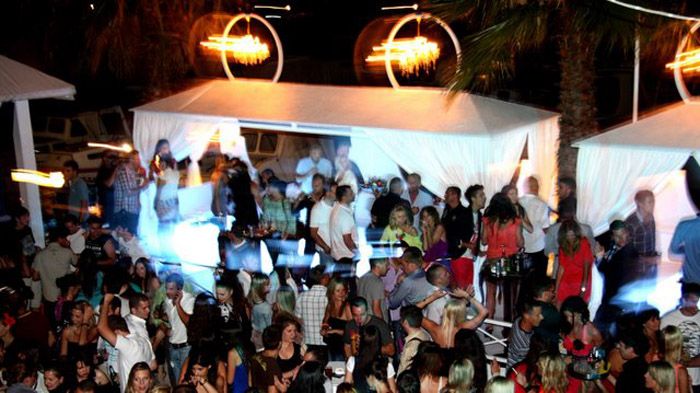
On the verge of this neighbourhood, there are also some of the main nightlife points in Split, like clubs Vanilla and Hemingway Bar. Maybe you won’t like Croatian music there, but there are also some more versatile nights.
The downside of Poljud and Spinut might be that it’s just too different from the parts of Split that maybe drew you here. It’s a residential, family area, with not so much history around. Still, if you don’t mind do a little walk, it can be attractive if you want to pay less for some comfortable accommodation. Except during the days of Ultra Europe, then you will always pay more.
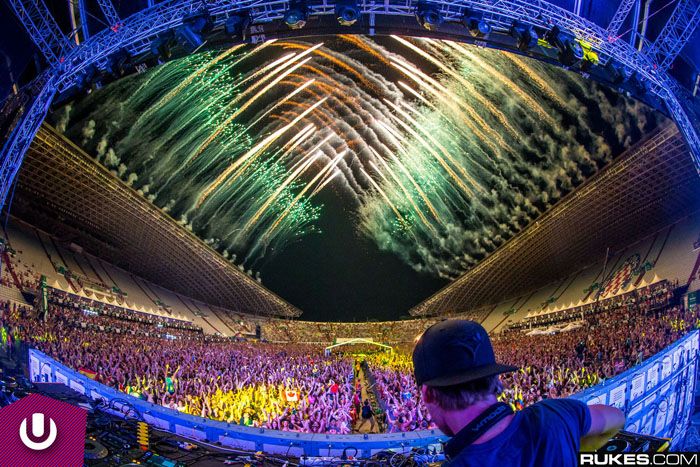
To be continued
PREVIOUSLY IN WHERE TO STAY IN SPLIT
Choose Neighbourhood By Your Needs
City Within The Imperial Palace


